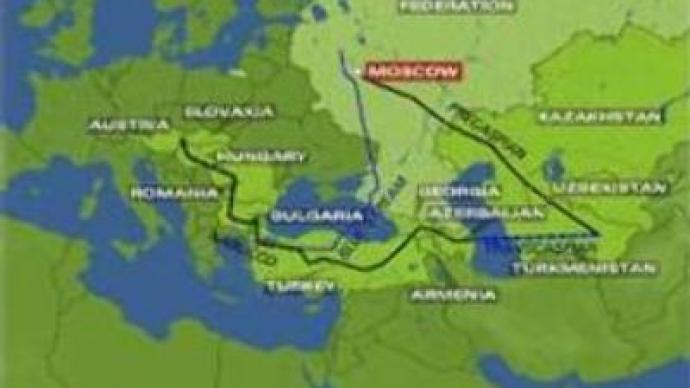Russia competes for gas routes

While Russia signs a pipeline deal with two Caspian, Russian Parliamentary deputies have raised concerns over the construction of a Trans-Caspian pipeline that would feed gas to Western Europe bypassing Russia.
Chairman of the State Duma Committee for CIS Affairs, Andrey Kokoshin, said the project faces economic and environmental challenges. Meanwhile Russia is pressing ahead with its own plan to channel gas from the same Central Asian region.Russia has struck a deal with Kazakhstan and Turkmenistan to build an overland pipeline that would feed its gas export network.The new Pre-Caspian pipeline has renewed European concerns about Russia's control over energy assets.Russia provides roughly half of Europe's gas imports and it's keen not to allow other suppliers to compete for the lucrative market.This becomes clearer when considering Russia's refusal to ratify the EU's energy-charter treaty. The agreement would open up Russia's distribution network to other countries.The EU, for its part, cannot agree on a common policy to reduce its dependence.The Nabucco project envisions a pipeline stretching from Turkey to Austria and bypassing Russia. It would carry Central Asian gas – by linking up with an existing pipeline in Turkey.Russia has a competing project to extend the Blue Stream pipeline – which currently crosses the Black Sea and Turkey.By signing the Pre-Caspian deal, Russia has effectively triumphed over a competing plan to build a Trans-Caspian pipeline – a proposal to link up with the Nabucco route. This last project has the United States' backing as a brake on Russia's increasing control over the world's energy market.But this rush to build pipelines comes at the cost of falling investment in gas exploration. Russia's gas fields are producing less and less each year while domestic demand continues to grow.Output from Gazprom's leading fields is falling by about 6% a year – that in part explains why the monopoly is turning to Central Asia's gas fields to plug the gap. Some analysts say Turkmenistan is producing enough gas to supply either the Russian or the US-backed pipeline project – but not both.
You can share this story on social media:












